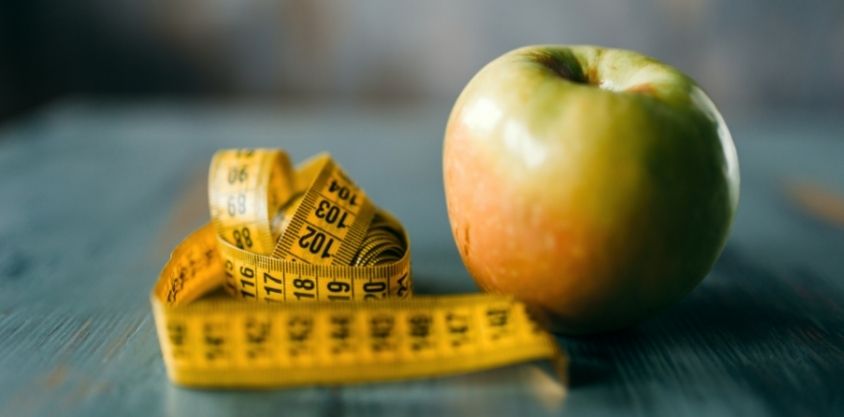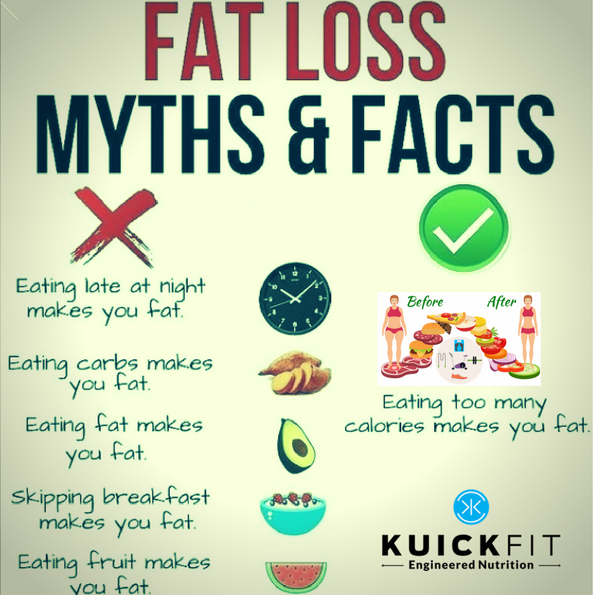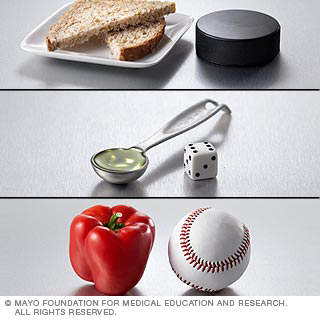
If you are injured and can't exercise, it is important to learn how you can lose weight. There are many methods that you can use. You can regulate your portions and monitor calories. You can also try to eat only when you are hungry instead of all day. This will help you to eat less. Here are some tips that will help you lose weight as you work towards recovery.
Proper portion control
Over 13 million American children are obese, while the majority of adult Americans are overweight. Experts blame obesity on fast food, high-fat, high-sugar and insufficient exercise. You can reduce unnecessary calories and maintain a healthy weight by controlling your portion sizes. Here are some advantages to eating small portions.

It is possible to eat healthy food even when you are unable exercise. This is important because it is possible to restrict the amount of calories that your body needs. Eating moderate portions of high-calorie foods won't necessarily lead to weight loss, but it will help you maintain a healthy weight. Participation control is key to reaching your goal.
Standing at a desk
Standing at a desk will give you an hourly calorie burn and may lower your risk of cardiovascular disease. However, standing at your desk all day may not be safe, especially if you sit for long hours. Standing at your desk for too long can cause joint and leg pain. A standing desk is a good option if you can't stand up for any length of time.
If you can't find time to exercise during the day, try using a standing desk instead. Standing for a while can still burn calories, even if you sit all day. If you are confined to a desk job, you can use a stand-up computer screen or even buy a treadmill-ready vertical desk. You'll be amazed at how much energy it saves by changing the way you look. Standing is good for your mental health, and it helps you keep your muscles toned.
Medical conditions that cause weight gain
A few medical conditions can result in sudden, excessive weight gain if you're unable to exercise. Cushing's disease, a rare disease that affects approximately 10 people per million, causes the body to produce too much cortisol, leading to weight gain. This causes extra fat around the stomach and back as well as around the shoulders. Other symptoms of the disorder include fatigue, high blood pressure, and excessive body hair.

Cushing's disease, hypothyroidism and other conditions can all interfere with weight loss. These conditions result in a high level of cortisol, which causes you to feel hungry and stores fat. They can also cause depression and irritability. Your metabolism may also be affected by Cushing's Disease and Hypothyroidism. Consult a doctor immediately if you experience any of the above symptoms.
FAQ
How long do I need to fast for weight loss?
The answer isn't as easy as it seems. A number of factors need to be considered when determining how many days of fasting are needed for optimal fat loss. These are:
-
Your age. You may find intermittent fasting too difficult if you're younger (under 40) because you have less time between fasts. You may not have enough energy for a sustained period of daily fasting if you are older (over 60).
-
Your current body composition. Your current body composition. If you have a lot more muscle mass than you need, then you will likely be more successful with longer fasting periods. You may find shorter fasting more beneficial if your muscle mass is low.
-
How physically active you are. Exercise regularly and you may need to extend the fasting window in order to get enough sleep between workouts.
-
Your health history. Extra fasting may be necessary for people who have heart disease, diabetes, cancer, or other medical conditions.
-
What is your tolerance for stress? Stressful situations often make us eat less. You may need to extend your fasting times in order to avoid this problem.
-
The type of diet you follow. Certain diets, like ketogenic diets, may require even longer fasting periods.
-
Your sleep quality. A decreased quality of sleep can also be linked to decreased appetite and metabolism. Therefore, it may take some experimentation before determining what works best for you.
-
The amount of protein that you consume. Protein stabilizes blood sugar levels. Therefore, eating more protein could result in lower insulin levels. This would allow you be more consistent in your fasting.
-
People who want to gain weight or lose it will need to fast for longer periods of time than those trying to lose.
-
What proportion of calories do your fasting hours allow you to consume? Fasting for fewer calories per days may lead to greater fat loss than fasting with more calories.
-
Your fitness level. Faster people are more likely to be fit, and burn more calories during the day.
-
Your gender. Men typically have larger appetites than women, so they may need to fast for slightly longer periods of time. Women are more likely to have smaller appetites and may need to fast only 20-30 minutes every day.
-
Your lifestyle. Are you someone who does a lot of exercise? Do you exercise multiple times a week or do you just go to the gym? Are you a worker who sits at a computer all day? These factors could affect how much you should fast.
-
How much do you spend per month on food? Healthy eating doesn't mean you have to spend a lot on groceries. You can save money by buying whole grains instead of white bread, fruits instead of candy bars, and lean meats instead of fatty cuts.
-
How important it is for you to control your hunger. You may not have to fast as often if it is important to eat regularly.
How often do people fast?
Most people who follow a ketogenic diet fast once per week. However, there are some who fast twice per week. Some others fast three days per week.
Every fast is different. Some people fast 24 hours, while others fast 48 hours.
Some people go on for more than 72 hours. However, extreme cases like these are rare.
What foods should I consume during an intermittent fast to lose weight
The best way to lose weight is to cut out carbs. This means eliminating carbohydrate-based foods such as pasta, bread, rice, potatoes, or other carbohydrate food.
You'll also want to avoid eating too much protein because it keeps you full longer. So you won't feel hungry as often.
Focus on foods rich in healthy fats like olive oil, avocado, nuts and seeds. These foods are satisfying and will keep your hunger at bay for hours.
It's important to make sure you're drinking plenty of water, too. Water helps you to stay hydrated which makes it easier for you to lose weight.
Sometimes you may feel compelled to eat these foods even if you're not fasting. These cravings don't necessarily mean that you should give in. You could gain more weight than what you lose if you do.
To prevent overeating, try keeping an eye on how much you consume throughout the day. Drink a glass water whenever you feel hungry.
Although it might seem counterintuitive, this is actually proven to be a great way to lose weight. A study published online in Obesity revealed that people drank more plain water than they did sugary drinks.
In addition, drinking plain water helped reduce feelings of hunger. If you want to lose weight, avoid sweetened beverages and drink water.
You don't have to eat every calorie or avoid certain foods if you are trying to lose weight. Instead, you should make small lifestyle changes.
For example, you can start by swapping your usual breakfast sandwich for a bowl of oatmeal. Try swapping your afternoon cookie to a piece or fruit.
These easy changes can help you lose weight and keep your kitchen clean.
Why not lose weight before your 40th birthday?
Maintaining health and fitness is the most important thing for people over 40. It is also crucial to find ways to keep fit throughout life. Regular exercise, healthy eating, moderate alcohol consumption, and quitting smoking are all important.
It is also important to understand that as we get older, our bodies change. Our bones become weaker, and our muscles begin to shrink. You can slow down the aging process if you take care of yourself.
As we age, there are many advantages to being healthy and fit. These include:
-
Better Sleep
-
Better mood
-
Enhanced energy levels
-
Lower risk of developing cancer
-
A longer life
-
More independence
-
More sex
-
Greater memory
-
Improved concentration
-
Greater circulation
-
Stronger immune system
-
Fewer aches & pains
What can you drink while intermittent fasting is in effect?
Water should be consumed first thing in the AM. This helps you feel fuller quicker and gives you energy for the rest of your day. For more flavor, add lemon juice and cucumber slices.
Do cardio exercises work fast to help me lose weight?
Cardio exercises are great at burning calories but don't help you lose weight. It depends on how fat you have and what exercise you do.
If you're obese, cardio exercises might not be enough for you to shed those extra pounds.
These should be combined with diet and other forms of exercise.
Cardio exercises, such as running or jogging, can help you lose weight quickly. These cardio exercises burn more calories than any other type of exercise.
However, resistance training is required if you wish to build muscles and not lose weight. Resistance training requires the use of free weights and machines as well as elastic bands.
For fast weight loss, combine cardio with resistance training.
Combining cardio and resistance training is a great way to quickly lose weight.
What foods will help me lose weight more quickly?
You can lose weight more quickly by eating fewer calories. There are two ways to do this:
-
Reduce the amount of calories that you consume each day.
-
Physical activity can help you to burn more calories.
Reducing the number of calories you eat is easier said than done. There are calorie-laden fast food options all around us. Here's how to lose those extra pounds.
-
Beans contain high levels of fiber and protein. They have very little fat making them a great option for dieters trying to reduce their caloric intake.
-
Oatmeal is low on calories but high in nutrients, such as magnesium or potassium. Oatmeal has less sugar than other cereals.
-
Eggs are full of cholesterol and protein. Eaten eggs one or two times a week can help boost metabolism and allow you to burn more calories.
-
Whole grain bread may help you feel fuller, longer.
-
Dark chocolate contains antioxidants and flavonoids that have been linked both to better cardiovascular health and lower blood pressure.
-
Cottage cheese is high in calcium, which helps to build strong bones. It also provides a good source of vitamin D, which boosts immunity.
-
Omega-3 fatty acids are abundant in salmon, which can promote brain development and improve cardiovascular function.
-
Green tea is chock-full of catechins, compounds that fight cancer and increase metabolism.
-
Broccoli has a lot of folic, which can lower homocysteine in the blood. Homocysteine high levels are associated with increased heart disease risk and stroke.
-
Yogurt is an excellent way to include probiotics in your diet without adding sugars. Probiotics are essential for digestive health.
-
Berries are delicious and nutritious snacks. Blueberries, strawberries, blackberries, raspberries, and cranberries are all excellent sources of vitamins and minerals.
-
Avocados are rich in healthy fats. A half avocado has 80 calories but plenty of filling fiber.
-
Nuts are delicious snacks that also provide a lot of protein. You can choose from cashews or hazelnuts, almonds, walnuts or pecans.
-
Sweet potatoes, another starchy vegetable, are rich in beta-carotene which gives your skin a glow. Because of their higher beta carotene levels, orange sweet potatoes are particularly good.
Statistics
- One 6-month study showed that simply doing 11 minutes of strength-based exercises 3 times per week resulted in a 7.4% increase in metabolic rate, on average. (healthline.com)
- Among women, the increase in metabolic rate was nearly 4%, or 50 more calories per day (14Trusted Source (healthline.com)
- Another study found that 24 weeks of weight training led to a 9% increase in metabolic rate among men, which equated to burning approximately 140 more calories per day. (healthline.com)
- According to Harvard Health, it's estimated that a 155-pound (70-kg) person burns around 167 calories per 30 minutes of walking at a moderate pace of 4 mph (6.4 km/h) (5). (healthline.com)
External Links
How To
How to lose weight quickly and without doing any exercise
Fast weight loss is possible by eating fewer calories than you burn. This will cause your body to start burning fat stores for energy. If you do not consume enough calories, your body will begin to break down muscle tissue to use for energy, which means you'll see some muscle loss. If you don't exercise while dieting, you can still lose weight. But you will probably lose even more.
To lose weight quickly and without exercising, you need to cut down on your calorie intake. Most people think they should reduce their food intake to lose weight, but this isn't true. You want to eat fewer calories than what you burn when you are trying to lose weight. So how much should you eat every day? It all depends upon what type of activity you engage daily. Someone who walks three miles per day would require only about 2,500 calories. An individual who works all day at a desk would consume around 1,600 calories each day. For someone who exercises often (e.g. lifting weights), the daily intake would be around 1,600 calories.
When you want lose weight, it is important to cut down on your caloric intake. Many people believe they should eat less food to feel better. However, this is not the truth. Your body doesn’t care what you eat; it wants to function properly. In order to lose extra weight, it is essential that you keep track of how many calories you consume. There are many apps available online that allow you to monitor your calorie intake. MyFitnessPal is one of the most popular apps.